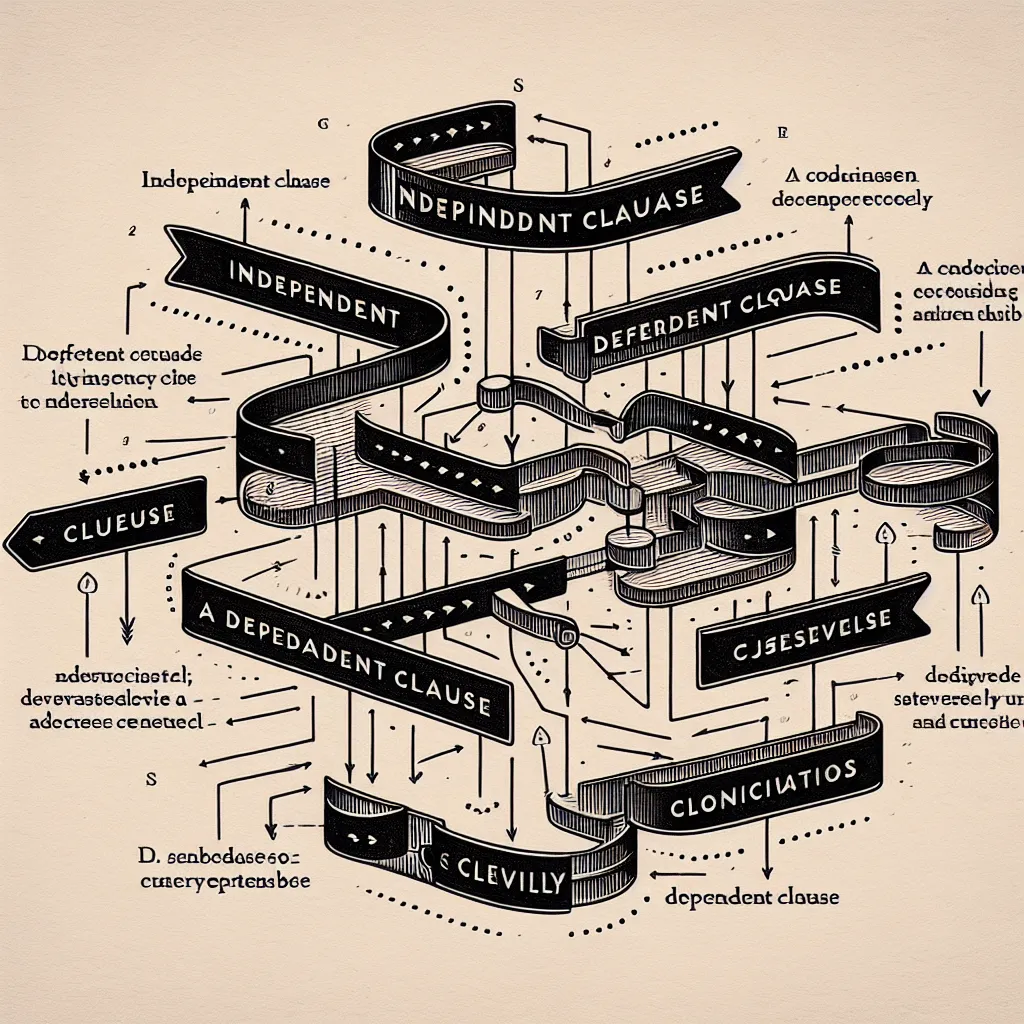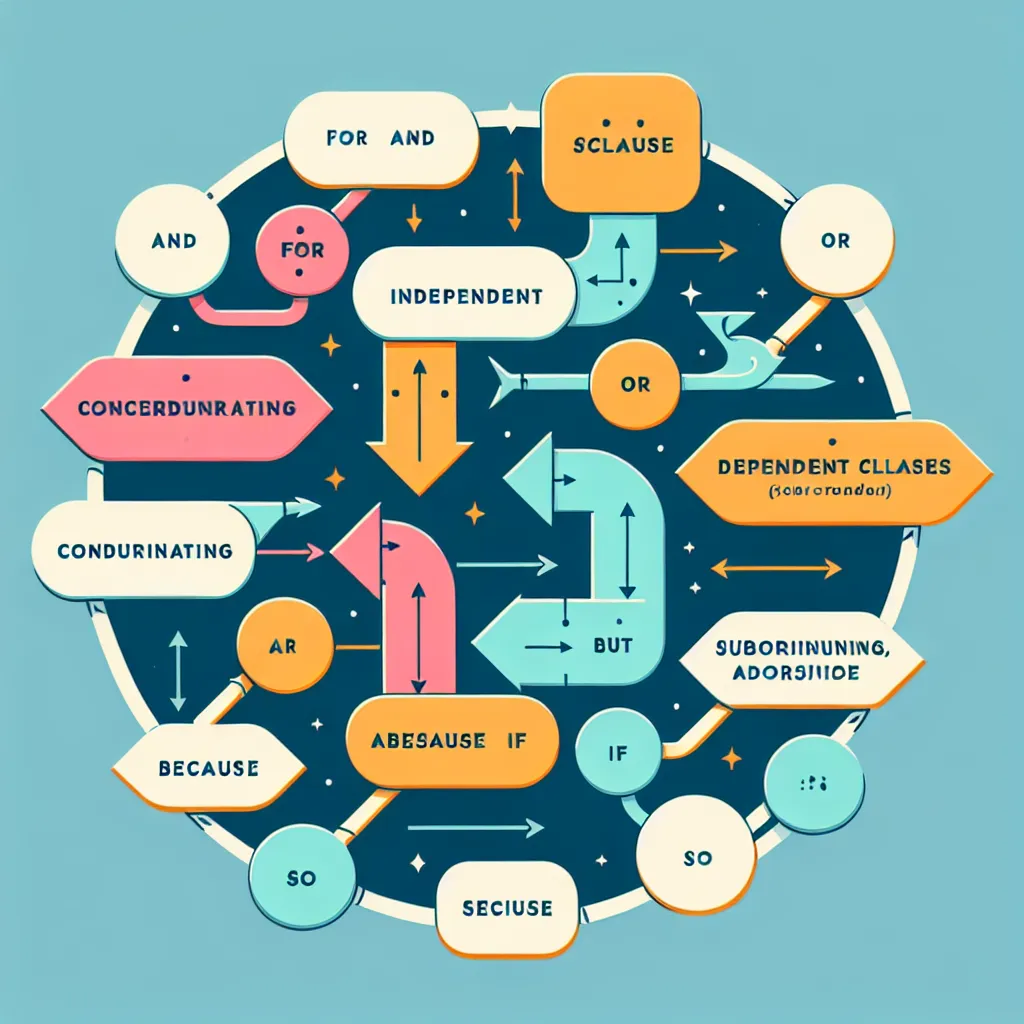Mastering the use of conjunctions in complex sentences is a crucial skill for anyone looking to improve their English language proficiency. Whether you’re preparing for the IELTS exam or simply aiming to enhance your writing and speaking abilities, understanding how to effectively use conjunctions can significantly elevate the quality and sophistication of your language use. In this comprehensive guide, we’ll explore various strategies and techniques to help you master this essential aspect of English grammar.
Understanding Conjunctions and Complex Sentences
Before diving into the specifics of mastering conjunctions in complex sentences, it’s important to have a clear understanding of what these terms mean and why they are important.
What Are Conjunctions?
Conjunctions are words that connect other words, phrases, or clauses in a sentence. They serve as linguistic bridges, allowing us to create more complex and nuanced expressions. Some common conjunctions include:
- Coordinating conjunctions: and, but, or, yet, for, nor, so
- Subordinating conjunctions: because, although, if, when, while, unless
- Correlative conjunctions: either…or, neither…nor, both…and, not only…but also
What Are Complex Sentences?
Complex sentences consist of an independent clause and at least one dependent clause. They allow us to express more sophisticated ideas and relationships between thoughts. For example:
“Although it was raining heavily (dependent clause), we decided to go for a walk (independent clause).”
 Complex sentence structure
Complex sentence structure
Strategies for Mastering Conjunctions in Complex Sentences
Now that we’ve established the basics, let’s explore some effective strategies to help you master the use of conjunctions in complex sentences.
1. Study Different Types of Conjunctions
To use conjunctions effectively, you need to be familiar with the various types and their functions. Here’s a breakdown:
-
Coordinating conjunctions: Use these to join independent clauses or items in a list.
Example: “I love coffee, and I enjoy tea.” -
Subordinating conjunctions: These introduce dependent clauses and show the relationship between the dependent and independent clauses.
Example: “Because it was snowing, the schools were closed.” -
Correlative conjunctions: These are pairs of conjunctions that work together.
Example: “Not only did she win the race, but she also set a new record.”
2. Practice Identifying Clause Types
Being able to distinguish between independent and dependent clauses is crucial for constructing complex sentences correctly. Here’s how:
-
Independent clause: Can stand alone as a complete sentence.
Example: “The sun was shining.” -
Dependent clause: Cannot stand alone and needs an independent clause to make sense.
Example: “While the sun was shining…”
Practice by breaking down sentences in your reading materials and identifying each clause type.
3. Learn Conjunction Functions
Different conjunctions serve various purposes. Understanding these functions will help you choose the right conjunction for your intended meaning:
- Addition: and, moreover, furthermore
- Contrast: but, however, although
- Cause and effect: because, since, therefore
- Condition: if, unless, provided that
- Time: when, while, as soon as
4. Use Varied Sentence Structures
Don’t limit yourself to one type of complex sentence structure. Experiment with different patterns:
- Beginning with a dependent clause: “Although it was late, we continued working.”
- Ending with a dependent clause: “We continued working, although it was late.”
- Inserting a dependent clause in the middle: “The project, although challenging, was completed on time.”
 Varied sentence structures
Varied sentence structures
5. Practice with Real-World Materials
Engage with authentic English materials to see conjunctions in context:
- Read English news articles and identify complex sentences.
- Listen to podcasts or watch English-language TV shows, paying attention to how speakers use conjunctions.
- Analyze academic papers or literary works for more advanced conjunction usage.
6. Create Your Own Sentences
Put your knowledge into practice by creating your own complex sentences. Start with simple scenarios and gradually increase complexity:
- “I stayed home (independent clause) because I was feeling unwell (dependent clause).”
- “Although the traffic was heavy (dependent clause), we arrived on time (independent clause), which surprised everyone (another dependent clause).”
7. Use Online Resources and Exercises
Take advantage of online grammar resources and exercises specifically designed to help you master conjunctions in complex sentences. Websites like IELTS.NET offer valuable tips and practice materials.
Common Pitfalls to Avoid
As you work on mastering conjunctions in complex sentences, be aware of these common mistakes:
-
Comma splices: Incorrectly joining two independent clauses with just a comma.
Incorrect: “It was raining, we stayed inside.”
Correct: “It was raining, so we stayed inside.” or “It was raining; we stayed inside.” -
Run-on sentences: Joining independent clauses without proper punctuation or conjunctions.
Incorrect: “I love cooking I enjoy trying new recipes.”
Correct: “I love cooking, and I enjoy trying new recipes.” -
Misusing subordinating conjunctions: Ensure that the subordinating conjunction introduces a dependent clause, not an independent one.
Incorrect: “Although it was raining. We went for a walk.”
Correct: “Although it was raining, we went for a walk.” -
Overusing certain conjunctions: Vary your conjunction choices to make your writing more interesting and sophisticated.
Next Steps
Now that you have a solid foundation for mastering the use of conjunctions in complex sentences, here are some next steps to further enhance your skills:
-
Set a daily writing goal where you incorporate at least five complex sentences using different conjunctions.
-
Find a language exchange partner and practice using complex sentences in conversation.
-
Take an online grammar course that focuses on advanced sentence structures and conjunction usage.
-
Challenge yourself with timed writing exercises, focusing on creating varied and complex sentences under pressure – excellent practice for exams like IELTS.
-
Review your old writings and try to improve them by incorporating more sophisticated conjunction use.
For more strategies on mastering English grammar, especially in exam contexts, check out our article on strategies for mastering English grammar in exams.
Conclusion
Mastering the use of conjunctions in complex sentences is a journey that requires patience, practice, and persistence. By understanding the different types of conjunctions, practicing varied sentence structures, and being mindful of common pitfalls, you can significantly improve your English language skills. Remember, the key to mastery is consistent practice and application in real-world contexts. Keep challenging yourself, and soon you’ll find that crafting complex sentences with conjunctions becomes second nature.
We encourage you to share your experiences and any additional tips you may have in the comments section below. Happy learning, and may your journey to mastering English grammar be both rewarding and enjoyable!




